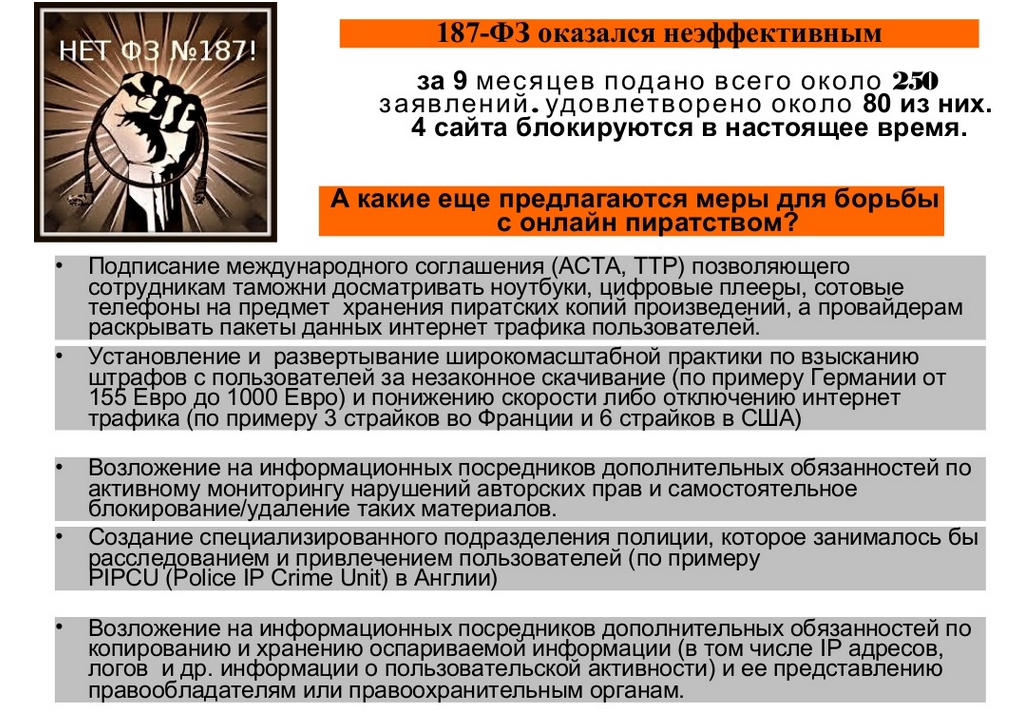The largest copyright lobbyists shared their vision of the further fight against digital piracy

The light of the whole world and Russian copywriting gathered in St. Petersburg in order to discuss how to more effectively strangle unauthorized copying on the Internet in order to protect copyrights.
Each of the participants expressed their opinion on what needs to be done to defeat piracy on the network:
- Alexey Pimanov, president of the Krasnaya Zvezda media holding : “Probably, amendments to this law should be made that will punish the end user of the content. We believe that this is not entirely correct, but if everything happens as it is now, we will have to go this way. "
- Chris Marsich, president of Motion Picture Association: “Many of the achievements in copyright protection are related to the education of the user and the penalties that are imposed on those who illegally download content. Of course, blocking sites with illegal content also works well. ”
- Michael Robinson, vice president of Motion Picture Association of America: “you need to make illegal downloads on the Internet unavailable and equate to shoplifting.”
- Alexey Volin, Deputy Minister of Telecom and Mass Communications of the Russian Federation:“The habit of receiving everything for free has become a threat not only to content, but also to distributors of content. The industry needs its “polite people” who will fight with those who violate the rights of producers and content. The question of end-user responsibility is a question of efficiency. You have to hit those who are easier to find. ”
and of course, the star of Russian copywriting
is Alexander Akopov, president of Amedia, co-chairman of the Association of Film and Television Producers: “Google and Yandex are the main pirate organizations today. Google - worldwide, Yandex - in Russia. If some large companies once again evade responsibility, it will ultimately lie with the end user. ”
During the conference, Minister of Communications Volin voiced an interesting proposal by the Ministry of Communications to introduce the concept of an “unfair site” that could be completely blocked, and proposed to use not only a good word, but also Colt,
Obviously, anti-piracy law No. 187 with his I couldn’t at least somehow help with a complicated bureaucratic procedure in such a difficult struggle against windmills of unauthorized copying of content.
Let me remind you that this is not all the methods that are used in the world to combat the

But will the application of all these methods be effective? Unlikely. Recent researchin the field of copyright and content distribution, the opposite is true. However, the consequences can be most disastrous.
And we once again draw the attention of media companies to the fact that instead of combating file-sharing technologies with incredible efforts to protect exclusive rights in the digital space (using surveillance of users, assigning additional responsibilities to information intermediaries), it is time for corporations to keep up with the times and not whine about the fact that because of the pirates, the business is becoming unprofitable. Otherwise, you won’t earn money on content on the Internet.
So colts in a holster, hands on the table, and let's get started on copyright reform.
